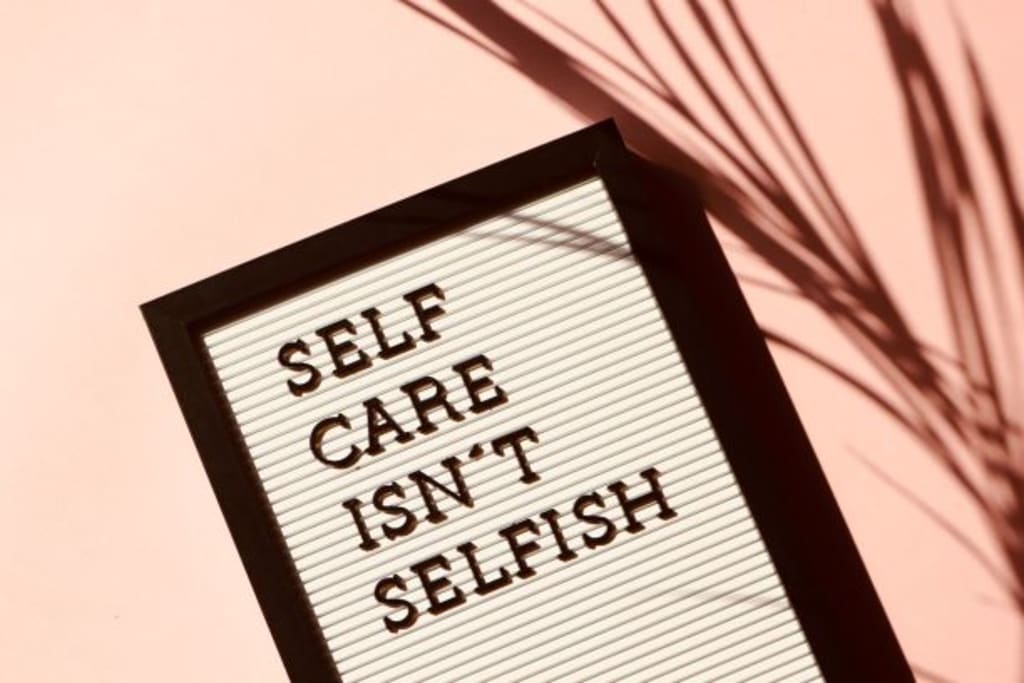
J.S Panthera Consulting
Self Love Article
3/31/2021
Why is self-love so important, and how can you grow it?
Self-love can conjure up images of people doing yoga on the beach or all the cheesy self-help gurus that have taken over social media for many people. Self-love and -compassion, on the other hand, are critical for mental health and well-being, holding depression and anxiety at bay, according to several psychology reports. In short the work of self love is an inside job. We'll look at some of the things you can do to nurture this core feeling in the sections below.
“Why is self-love so important?” you may wonder. Self-love can appear to many of us as a privilege rather than a necessity — or as a new-age fad for those with too much free time on their hands.
Ironically, those of us who do the inner work and are constantly attempting to overcome ourselves while dealing with this insane standard of perfection may require the most compassion and self-care.
When we are highly critical of ourselves, we are generally motivated by a desire to succeed and do it perfectly all of the time. This includes a lot of self-criticism and perfectionism and it is defined by that persecutory inner voice that constantly tells us how we should have done things differently. This creates self hate, trust me I’ve been there!
Perfectionists are more likely to suffer from a variety of illnesses, both physical and mental, according to research, and self-compassion may help us break free from its grip. Perfectionism and self-compassion are thus inextricably linked.
This article will look at ways to reduce the former and increase the latter, in the hope that doing so will help you live a happier, more fulfilled life.
Let’s start with self compassion.
What exactly is self-compassion? In specialized literature, the terms self-compassion and self-love are frequently used interchangeably. According to research, having more self-compassion increases resilience in the face of adversity, allowing people to heal more easily from trauma or romantic breakup. It also aids us in dealing with failure or embarrassment.
But, exactly, what is it? During my research, I discovered three components.
“self-kindness” (i.e., treating oneself with understanding and forgiveness)
“awareness of one's place in shared humanity” (i.e., acknowledging that people are not perfect and that personal experiences are part of the larger human experience)
“mindfulness” (i.e., emotional equanimity and avoidance of overidentification with painful emotions).
“Rather than flagellating ourselves with self-criticism, self-kindness entails being warm and understanding toward ourselves when we suffer, fail, or feel inadequate,”
Isn't it true that saying anything is better than doing it? You might believe that, but the same researchers who worked so hard to study and describe that emotion have also come up with a few helpful hints for improving it.
Self-compassion that has been mindfully cultivated
Profs. Neff and Germer, who work at Harvard Medical School in Boston, MA, created a method called "Mindful Self-Compassion Preparation" by incorporating mindfulness and self-compassion, which they have tested in clinical trials with promising results.
“Self-compassion says, ‘Be kind to yourself in the midst of suffering, and it will change,” the researchers write. ‘Be open to pain with spacious consciousness and it will change,' says the component mindfulness.
The curriculum involves a number of meditations, such as "loving-kindness meditation" or "affectionate breathing," as well as "informal activities for use in everyday life," such as "soothing contact" or "self-compassionate letter writing," both of which have been shown to assist in the production of self-compassion in study participants.
The researchers found that practicing these strategies for 40 minutes a day for 8 weeks increased participants' levels of self-compassion by 43%.
Self-compassion can be built through a series of mindfulness activities. During periods of emotional distress, one easy exercise is to repeat the three phrases below:
“This is a moment of suffering,” “Suffering is a part of life,” and “May I be kind to myself.” These three mantras refer to the three aspects of self-love we discussed previously.
Prof. Neff details several more useful mantras in her book Self-Compassion and guides the reader in developing their own. Her website, self-compassion.org, also has a number of related exercises that are available for free.
The goal is to keep your composure and note that balance is the secret to life and that nothing lasts forever. Just like there will always be difficult days, there will always be good times! Along with these mantras, I like to picture myself moving through a dark tunnel, knowing that there is a light at the end and that there will be another tunnel eventually, and that this is a normal part of life from which no one can escape. Another technique I employ (all of my runners will understand what I mean) is to simply concentrate on putting one foot in front of the other until you arrive at your next destination.
If you're unsure about the effects of mindfully repeating mantras to yourself, you may be relieved to learn that evidence backs them up. These self-compassion exercises have been shown to reduce cortisol levels and improve heart rate variability, which is the body's physiological capacity to cope with stressful circumstances.
Perfectionism's drawbacks
We addressed perfectionism earlier. Now let's talk about the disadvantages, because it can be nothing short of a disease. Perfectionism is a desirable trait, according to the Western world. Whether it's going to a job interview and obsessing over the smallest details, dating and expecting instant gratification, or trying to live up to social media standards and pretending we all have perfect fantastic lives, most of us have been duped into believing the lie that is perfectionism. It can have a negative impact on your self-care and mental health.
Leaving perfectionism behind
So, how can we break free from perfectionism? First and foremost, recognize that it is unhealthy for you; punishing yourself for minor mistakes erodes your self-esteem and makes you unhappy. You are deserving of more.
Happiness is something you have a right to, not something you have to work for. Even the United Nations recognized that the “pursuit of happiness is a basic human goal” in a resolution. Wasn't that the point of Will Smith's 2006 film The Pursuit of Happyness? (and yes I know it is spelled incorrectly, you have to see the film if you haven’t to understand)
Often, avoid the urge to chastise yourself for chastising yourself. You build an unconscious reflex to put yourself down for any small thing, no matter how irrational or ludicrous, after you've spent years nurturing this inner bully.
Perfectionists are prone to berating themselves for minor infractions, such as missing a deadline or leaving an object in an inconvenient location (such as your phone on the top of your car after a fun play session with your dog at the dog park), so punishing yourself for criticizing yourself is normal.
Finally, you will begin to practice self-compassion, which is sorely required. You might believe that self-love is something that you either have or don't, but psychologists say it is something that can be learned.
Self-awareness
Listening to yourself is the first step toward self-awareness. It's possible to listen to yourself in two ways. For starters, the benefits of listening to yourself and what you need in that moment, as well as being conscious enough to come up with the correct answer, are extremely helpful during periods of emotional distress.
Second learning to develop an intimate feeling of self-love necessitates paying attention to how you speak to yourself internally. When you talk negatively to yourself once, it might not seem important, but doing so regularly builds up a subconscious backing that is damaging to self-love.
When you notice a flaw or make a mistake, how do you speak to yourself? How does it make you feel inside if you are extremely critical of yourself? Do you make fun of yourself or do you talk about yourself in a more compassionate and understanding manner?
We are much harsher on ourselves than we would be on others or allow others to treat us. We must soften this harsh inner voice and replace it with a kinder one. Simply hearing and becoming aware of it is the first step toward changing your inner voice and improving your self-love. Consider it this way: you can rephrase your harsh observations in the words of a kinder, more forgiving person you know.
The benefits of listening to yourself and what you need in that moment, as well as being conscious enough to come up with the correct answer, are extremely helpful during periods of emotional distress.
In Closing
As adults, mindfulness will help us relearn to appreciate the simple, everyday stuff that we used to enjoy spontaneously as children. Self-kindness necessitates reacquainting ourselves with satisfaction in this manner. Most importantly, we must be vigilant of ourselves. There are enough organic pitfalls in the world without us being our own worst enemy. I can assure you that loving yourself is the first step toward being your best self! Anything else is secondary. It doesn't matter whether it's about your job, your friendship, or being a better person, spouse, son, or daughter. Whatever it is that you want to improve in this life, it all starts with you! I guarantee that if you focus on yourself first and do the work, everything else will fall into place with ease and clarity. Take precautions. Put in the effort! Be the best version of yourself! I have confidence in you! I believe in you! The same way I believe in myself!
About the Creator
Stephen
Hello I'm Stephen. I have an active mind full of wonderful, amazing, spiritual, beautiful, noir, intelligent, sexual, unbias, and bias thoughts with an imagination to match. I finally have a place to put those thoughts down so here I am.






Comments
There are no comments for this story
Be the first to respond and start the conversation.